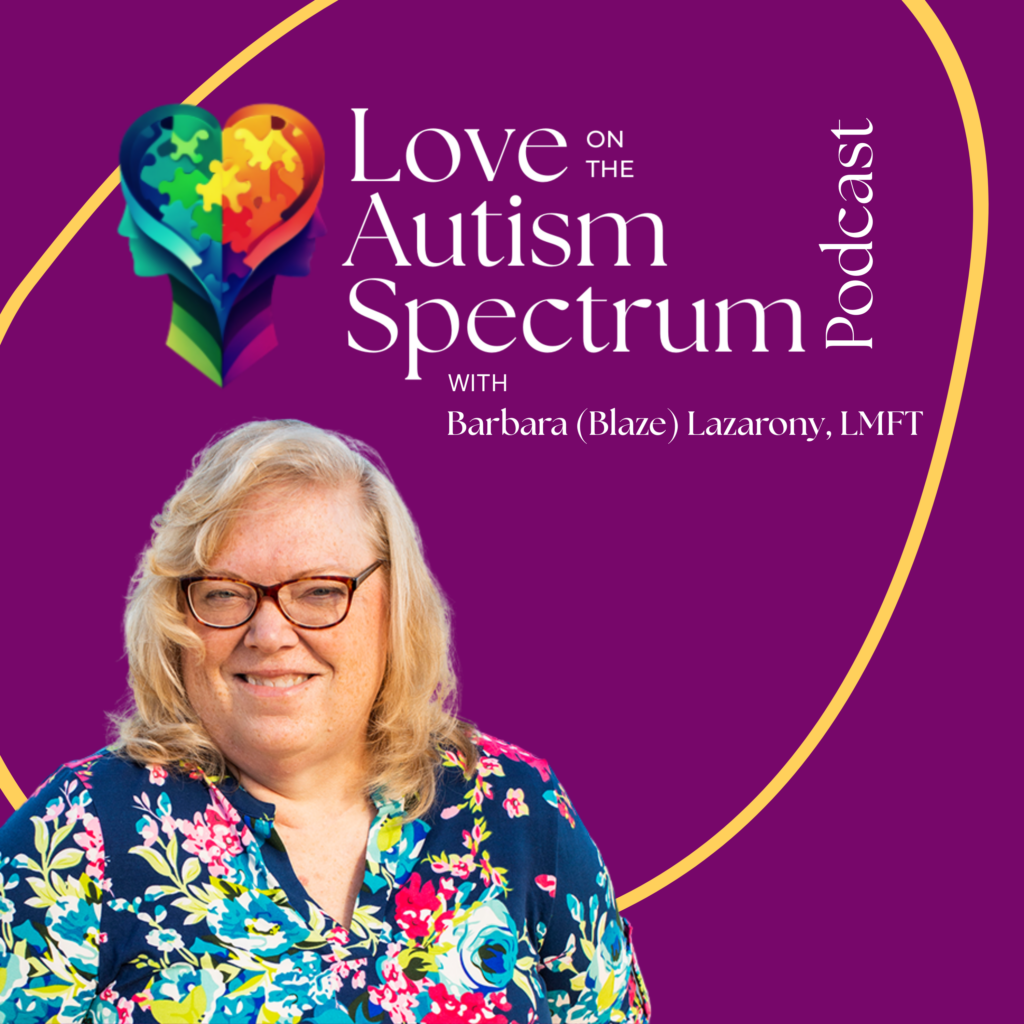Anger is a universal human emotion, yet it often carries a negative connotation. However, anger is a ‘natural emotion’ that, when appropriately managed, can lead to personal growth. What if we told you that when understood and managed correctly, anger can catalyze personal growth and emotional well-being?
This might seem like an unconventional perspective, but this fresh blog’s lens, through which author and psychotherapist David Richo examines “healthy anger,” has transformed countless lives, including mine!
Key Takeaways:
- David Richo’s work explores the concept of healthy anger and its role in personal growth.
- Recognizing the difference between healthy and unhealthy anger, including the role of angry expression, is essential for understanding its impact on relationships and personal growth. Understanding and managing these forms of anger can lead to cultivating loving kindness, which is crucial for managing it effectively.
- David Richo offers tools to develop mindful awareness and foster compassionate responses to anger, helping individuals transform their rage into constructive action.
Understanding Healthy Anger: Insights from David Richo
David Richo, a renowned author and psychotherapist, explores the concept of healthy anger and its role in our lives, particularly in adult relationships. He posits that, unlike its destructive counterpart, healthy anger is a tool to express distress, signaling emotions of hurt, betrayal, or violated boundaries and inviting resolution.
Interestingly, our relationship with anger is heavily influenced by our childhood experiences. For instance, those taught to express anger healthily during their formative years are likelier to do so as adults. In contrast, those exposed to violent or aggressive displays of anger may struggle with disruptive and harmful expressions of this emotion. Our emotional state, shaped by these early experiences, plays a crucial role in managing and expressing anger. Suppressing anger, as opposed to describing it healthily, can lead to prolonged stress, health issues, mental health challenges, and difficulties in maintaining authentic relationships, highlighting the importance of managing angry feelings constructively.
The Role of Healthy Anger in Personal Growth
Dave Richo underscores how integral healthy anger is to personal growth. Individuals who feel and express anger constructively pave the way for healing within themselves and their relationships. Effective communication of our needs allows us to assert our boundaries, values, and desires, contributing significantly to this healing process. This fosters understanding, nurtures healthy relationships, and promotes personal growth, preventing any potential growth scare. Not all anger is detrimental; when channeled correctly, it can be a constructive force contributing to personal development and well-being.
Moreover, healthy anger can be a tool for addressing injustices. It can channel emotions into positive actions and be pivotal in personal growth and the pursuit of justice. Embracing healthy anger prioritizes emotional well-being and contributes to personal development.
David Richo’s Perspective on Healthy Anger
David Richo’s perspective on healthy anger goes beyond merely understanding and expressing this emotion. He advocates for loving kindness, which he defines as expressing anger nonviolently and compassionately, as a fundamental element in our interactions with others. Richo emphasizes the importance of mindful awareness in recognizing and managing our anger. Dave shares an insightful table from his book on Page 19, How to Be an Adult in Relationships–Five Keys to Mindful Loving, outlining healthy anger and abuse. This unique approach involves:
- Acknowledging our anger by saying, “Ouch.”
- Understanding the underlying emotions and needs
- Treating anger as a catalyst for personal transformation and healing
- Expressing anger constructively
- Setting boundaries
- Using the energy of anger to effect positive changes
In contrast, passive aggression, such as sulking or blaming others, exemplifies an unhealthy way to express anger, diverging significantly from Richo’s approach of harnessing anger constructively.
Richo’s perspective also emphasizes the potential for healthy anger to enrich and repair relationships. He answers the important question, “What does healthy anger look like?” When expressed authentically and assertively, anger is a crucial form of self-expression that can strengthen our relationships.
The Dangers of Unhealthy Anger Expression
Unhealthy anger expression can have severe consequences for our physical and mental well-being. It can increase blood pressure, heart rate, and stress levels. Chronic anger has been linked to various health problems, including high blood pressure, cardiovascular disease, and a weakened immune system. Furthermore, unhealthy anger expression can damage our relationships, lead to social isolation, and even result in violent behavior.
Suppressing anger, on the other hand, can also have negative consequences. When we bottle up our anger, it can lead to feelings of resentment, bitterness, and even depression. Unexpressed anger can also manifest physically, causing headaches, stomach problems, and other somatic complaints. Additionally, suppressing anger can contribute to mental health challenges, exacerbating issues like anxiety and depression.
It’s essential to recognize the dangers of unhealthy anger expression and take steps to manage our anger constructively. By learning healthy anger management techniques, such as deep breathing, self-reflection, and assertive communication, we can reduce the negative impact of anger on our lives and cultivate a more positive and healthy emotional state.
Effective Anger Management for Healthy Expression
Effective anger management is crucial for maintaining healthy relationships, achieving emotional well-being, and preventing negative consequences. Healthy anger expression involves recognizing and understanding the underlying causes of anger, taking responsibility for one’s emotions, and constructively communicating feelings.
One of the most effective techniques for managing anger is deep breathing. When you feel your anger rising, take a moment to breathe deeply. This simple act can help calm your nervous system and reduce the intensity of your angry feelings. Another valuable technique is self-reflection. By taking the time to understand the root causes of your anger, you can address the underlying issues and prevent future outbursts.
Assertive communication is also key to healthy anger management. This involves expressing your feelings and needs clearly and respectfully without attacking or blaming others. By managing anger effectively, individuals can reduce stress, improve their mental and physical health, and develop more positive relationships with others.
Transforming Healthy and Unhealthy Anger into Loving Kindness
The journey from intense fury to loving kindness may seem impossible. However, this transformation is possible and incredibly rewarding with the right tools and mindset.
Key aspects of this transformation include identifying unhealthy anger patterns, such as abusive anger, and fostering compassion and empathy. Transforming rage into loving kindness benefits our relationships and significantly improves our mental health by promoting healthier ways of expressing anger and dealing with emotional challenges.
Recognizing Unhealthy Anger Expression Patterns
The first step towards managing anger is to recognize when someone becomes an angry person, frequently exhibiting unhealthy anger patterns. This involves identifying signs such as:
- aggressive reactions, like bullying, put-downs, or using sarcasm
- low tolerance for minor mistakes and is revenge-seeking
- frequent and intense outbursts
- difficulty controlling anger
- intimidation, threatening behavior, or overpowering others
Unhealthy anger can have detrimental effects, not just on our relationships but also on our psychological and physical health. It can lead to heightened stress, anxiety, depression, and even physical health issues like elevated blood pressure and heart problems.
Recognizing unhealthy patterns of anger isn’t just about identifying the symptoms; it’s about understanding their impact on our relationships and initiating change. Unhealthy anger patterns can create a hostile and toxic environment, leading to lasting damage in relationships. Therefore, it is vital to identify these patterns and seek professional help when managing anger becomes challenging.
Cultivating Loving Kindness
David Richo defines loving-kindness as assisting others during their suffering and unconditionally accepting them for who they are. Demonstrating compassion and understanding toward others is a powerful tool in managing anger. Cultivating loving-kindness allows individuals to respond to anger with compassion and knowledge rather than reacting with aggression or blame. This approach helps diffuse anger and encourages healthier and more constructive conflict resolution.
Empathy and compassion are indispensable in fostering loving kindness. Recognizing the imperfections and strengths of others fosters a profound sense of love and connection. By extending kindness and empathy to others, we can cultivate loving kindness and create healthier relationships. David Richo recommends Buddhist-inspired mindfulness techniques to help individuals develop the skill of extending love and compassion to themselves and others.
The Role of Forgiveness in Healing
Forgiveness plays a crucial role in healing from anger and other negative emotions. Holding onto anger and resentment can consume us and prevent us from moving forward. Forgiveness allows us to release the negative feelings associated with a particular event or situation, freeing us from anger and resentment.
Forgiveness doesn’t mean forgetting or condoning the hurtful behavior; it means releasing the negative emotions associated with it. By forgiving others, we can break free from the cycle of anger and resentment and cultivate a more positive and compassionate emotional state.
Practicing forgiveness can also have physical health benefits, such as reducing blood pressure, heart rate, and stress levels. It can also improve our mental health by reducing symptoms of anxiety and depression.
When You Feel Angry: Healthy Ways to Respond
When you feel angry, it’s essential to respond healthily to avoid escalating the situation or causing harm to yourself or others. Here are some healthy ways to respond to anger:
- Take a time-out: Take a break and calm down before reacting. This can prevent you from saying or doing something you might regret.
- Practice deep breathing: Deep breathing can help calm your nervous system and reduce feelings of anger. Try inhaling deeply through your nose, holding your breath for a few seconds, and then exhaling slowly through your mouth.
- Engage in physical activity: Exercise can help release tension and reduce anger. Walking, running, or yoga are particularly effective.
- Communicate assertively: Express your feelings and needs clearly and respectfully without attacking or blaming others. Use “I” statements to keep the focus on your own emotions.
- Practice self-reflection: Take time to understand the underlying causes of your anger and identify ways to address them. This can help you gain insight into your emotional state and develop healthier coping mechanisms.
By responding to anger in these healthy ways, you can prevent negative consequences and maintain better control over your emotional state.
Nurturing Emotional Connection in Relationships
Nurturing emotional connections in relationships entails handling delicate processes such as facilitating open communication, establishing boundaries, and surmounting fear and guilt while avoiding harmful behaviors such as name-calling. Expressing ‘negative feelings’ in unhealthy ways, such as through aggression or passive-aggressiveness, can significantly damage these emotional connections and obscure other emotions.
These factors are imperative for fostering emotional intimacy, facilitating the healthy expression of anger, and addressing any underlying pain.
Communicating Feelings and Boundaries
Healthy communication of feelings and boundaries enables individuals to vent their anger without resorting to damaging or harmful behaviors. Expressing anger healthily includes:
- Avoiding aggressive or violent expressions of anger
- Opting for healthy outlets like mindfulness or therapy
- Using assertive communication to set clear boundaries and communicate feelings respectfully.
The effective communication of personal emotions in relationships involves:
- Practicing active listening
- Using ‘I’ statements to avoid blaming others
- Being attentive to non-verbal cues
- Choosing an appropriate time and setting for discussions.
Establishing boundaries in relationships involves recognizing one’s inherent value and assertively establishing healthy boundaries. It also entails communicating personal limits, which are crucial for maintaining a healthy emotional connection.
Overcoming Fear and Guilt in Relationships
Unhealthy anger patterns often give rise to fear and guilt in relationships. These emotions can diminish individuals, resulting in shame and emotional distress. Consequently, these unresolved emotions can impair emotional bonds and create a need for setting boundaries in relationships, making people no longer afraid to address their feelings.
Addressing the underlying causes of fear and guilt is crucial for nurturing a resilient emotional connection. This process can prevent the perpetuation of negative emotions and is imperative for the relationship’s well-being. It involves:
- Prioritizing the relationship over ego
- Gaining an understanding of fear, anger, and guilt
- Transforming specific fears related to guilt, shame, aloneness, and abandonment into opportunities for personal growth.
David Richo presents a variety of anger management tools and techniques, encompassing mindfulness practices and workshops. These tools emphasize the significance of recognizing our triggers and emotions and empower a skillful, compassionate response to anger.
Anger is emotional energy that we can use to create and maintain healthy boundaries. –Unknown
Stop Reacting, Start Healing
David Richo’s anger management approach centers on healing and personal growth. He encourages individuals to:
- Stop reacting impulsively
- Start addressing the underlying issues causing their anger
- Comprehend how past traumas elicit fear, anger, and sadness
- Initiate the healing journey
- Convert their rage into a catalyst for personal development.
It’s crucial to avoid unhealthy coping mechanisms, such as excessive drinking or anger outbursts, as part of the healing process from anger.
David Richo’s ‘stop reacting, start healing’ approach is based on a psychological understanding of triggers and reactions. He emphasizes the importance of self-responsibility and healing our triggers to achieve emotional maturity. This understanding enables individuals to understand the reasons behind their reactions and facilitates the conversion of anger into personal growth and healing.
In addition to his work as a psychotherapist and author, David Richo is also a successful workshop leader. His workshops dissect the scientific understanding of emotional triggers and reactions and equip participants with the tools to understand and manage these reactions healthily. I first had the opportunity to attend a workshop offered by Dave Richo at Esalen on the Big Sur coast in California in 2007.
Richo’s workshops utilize a range of specific methods and techniques for anger management, including addressing childhood trauma, challenging unhealthy paradigms, and promoting self-awareness and self-reflection in relationships.
Cultivating Emotional Intelligence
Emotional intelligence (EI) is the ability to recognize and understand emotions in ourselves and others. Cultivating EI is essential for effectively managing anger and other negative emotions. When we have high EI, we can recognize the physical and emotional signs of anger, such as increased heart rate and blood pressure, and take steps to manage them constructively.
EI also helps us understand the underlying causes of our anger, such as perceived threats, frustration, or hurt. By recognizing these causes, we can address the underlying issues and develop more effective coping strategies.
Developing EI involves practicing self-awareness, self-regulation, and social skills. We can cultivate EI by engaging in mindfulness, meditation, and journaling, which help us better understand our emotions and behaviors. By cultivating EI, we can improve our relationships, manage our anger more effectively, and enhance our emotional and physical health.
Building Healthy Relationships with Anger
Building healthy relationships requires effective communication, empathy, and conflict-resolution skills. When anger is present, it’s essential to address it constructively to prevent damaging the relationship. Here are some tips for building healthy relationships with anger:
- Practice active listening: Listen carefully to the other person’s perspective and try to understand their feelings and needs. This can help de-escalate anger and foster mutual understanding.
- Use “I” statements: Express your feelings and needs using “I” statements rather than blaming or attacking others. For example, say, “I feel upset when…” instead of “You always…”.
- Avoid criticizing or judging: Focus on the issue rather than attacking the other person’s character or behavior. This can help keep the conversation constructive and prevent further conflict.
- Seek common ground: Look for areas of agreement and try to find a mutually beneficial solution. This can help resolve conflicts and strengthen the relationship.
- Practice forgiveness: Let go of grudges and resentments and work towards healing and moving forward. Forgiveness can help you release negative emotions, promote healthier emotions, and move to address anger constructively; you can build stronger, healthier relationships and prevent the Addressing anger constructively can strengthen and improve.
If you’re struggling with unhealthy anger, it’s essential to seek help from a mental health professional. Unhealthy anger can lead to negative consequences, such as damaged relationships, poor physical health, and increased stress. A therapist can help you identify the underlying causes of your anger, develop healthy coping mechanisms, and improve your relationships with others.
Don’t be afraid to seek help – it’s a sign of strength, not weakness. Therapy can provide valuable insights and tools for managing anger, helping you achieve a more positive and healthy emotional state. By addressing unhealthy anger with the support of a professional, you can prevent its negative consequences and lead a more fulfilling life.
Real-Life Examples of Healthy Anger in Action
from real-life examples to truly understand the power of healthy anger. These stories demonstrate how individuals have used Richo’s techniques to manage their anger, showcasing the transformative power of embracing and understanding one’s emotions.
Real-life examples of healthy anger in action can be seen in celebrities and public figures who openly recognize and address their anger issues. They demonstrate the ability to control and transform their anger into constructive action.
For example, tennis superstar Serena Williams has been vocal about her struggles with anger and how she has learned to channel it healthily on the court. She credits her coach, Patrick Mouratoglou, for teaching her to embrace her emotions and use them as fuel for success instead of letting them control her behavior.
In the business world, Jeff Bezos, founder of Amazon, is known for his intense and sometimes aggressive leadership style. However, he acknowledges that his anger can be a powerful tool when used correctly. In an interview with Business Insider, he stated that “people who were right a lot of the time were people who often changed their mind. That’s one of the keys to being open-minded.”
Healthy anger can bring about positive change, even in personal relationships. When we are angry about a situation or behavior, it shows that we care and are invested in improving things. However, it’s essential to communicate our anger effectively and not let it consume us.
For many people, dealing with anger can be challenging. Although it is a natural emotion we all experience, how we manage and express it can significantly impact our relationships and overall well-being.
One healthy way to channel anger is through physical activity or exercise. This allows for releasing pent-up energy and tension while promoting endorphins—the body’s natural mood-boosting chemicals. Practicing mindfulness techniques can also help individuals become more aware of their emotions and learn to respond to them instead of reacting impulsively.
Another approach is to communicate effectively when feeling angry. This means expressing our feelings clearly and calmly without attacking or blaming others. Using “I” instead of “you” statements can help keep the conversation focused on our emotions rather than pointing fingers at someone else.
It’s also important to set boundaries and know when to withdraw from a situation that causes anger. Taking a break or stepping away from a heated discussion can help us relax and gather our thoughts before responding.
Additionally, seeking support from friends, family, or a therapist can provide valuable insight and guidance in managing anger. It’s okay to ask for help and learn new coping mechanisms for dealing with difficult emotions.
Ultimately, anger is a normal and valid emotion, but how we express and manage it can make all the difference. By actively practicing healthy communication and self-care strategies, we can learn to handle our anger constructively and maintain healthier relationships with ourselves and others.
Designed for your protection and safety, anger is originally and ultimately your friend and ally. Until you accept anger as a valid part of who you are, you will be at war with your anger and yourself. –Unknown
Summary
In conclusion, the power of healthy anger lies in its transformative potential. By understanding and improving our anger, we can channel this powerful emotion into personal growth and improved relationships. I avidly follow Dr. David Richo and integrate his teachings into my practice as a therapist and coach.
David Richo’s work provides a blueprint for this transformation, offering practical tools and techniques for managing anger, cultivating loving kindness, and fostering emDealingreframing our perspective on for many people get, we can turn an s can be helpful seemingly negative emotion into a catalyst for change and growth.
Frequently Asked Questions
What is the difference between healthy anger and abusive anger?
Healthy anger is a form of communication that conveys hurt and betrayal, whereas abusive anger seeks to suppress communication through coercion and oppression.
Practicing loving kindness towards others can help diffuse anger and lead to more constructive conflict resolution. It involves demonstrating compassion and understanding in the face of anger. This approach encourages compassionate responses, which are crucial for managing anger constructively.
What are some practical methods for expressing anger healthily?
Effective methods for expressing anger healthily include avoiding aggressive or violent expressions of anger, practicing mindfulness, seeking therapy, and setting clear boundaries.
How does David Richo suggest individuals can practice anger management?
David Richo suggests managing anger through acknowledging triggers, practicing self-awareness and mindfulness, taking responsibility, using clear communication, choosing kinder words, setting boundaries, and seeking support.
Can you provide an example of a real-life instance of healthy anger?
Public figures who openly acknowledge and deal with their anger issues provide real-life examples of healthy anger in action. They demonstrate the ability to control and transform their anger into constructive action.









